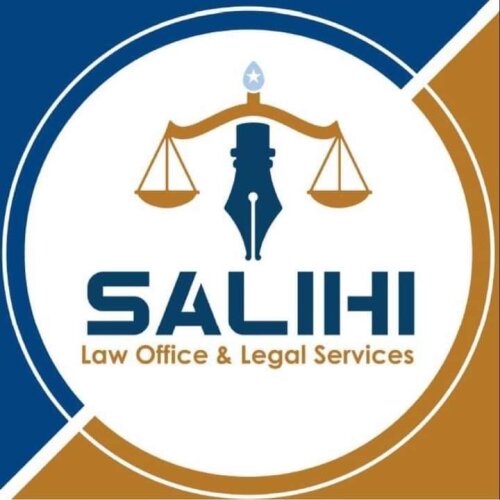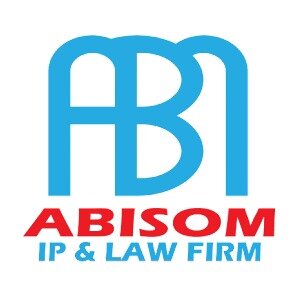Best FDA Law Lawyers in Somalia
Share your needs with us, get contacted by law firms.
Free. Takes 2 min.
Or refine your search by selecting a city:
List of the best lawyers in Somalia
About FDA Law in Somalia
FDA Law in Somalia refers broadly to the regulations, statutes, and administrative guidelines that govern the safety, efficacy, and quality of food, drugs, and medical devices available within the country. Somalia is in the process of strengthening its legal and regulatory frameworks following years of conflict and political instability. Although federal legislation is under development, oversight responsibilities are typically distributed between the Ministry of Health, local authorities, and international partners. FDA Law is vital for the protection of public health, ensuring that only safe and approved products reach Somali consumers.
Why You May Need a Lawyer
Legal guidance is often necessary when dealing with FDA Law in Somalia due to the complex and evolving regulatory landscape. Common situations where individuals or businesses may need legal assistance include:
- Importing or exporting food, pharmaceuticals, or medical devices
- Registering new drugs or healthcare products for sale
- Defending against regulatory enforcement actions or penalties
- Navigating product recalls or safety notices
- Ensuring compliance with local food safety standards
- Resolving disputes relating to product liability or harm from unsafe products
- Advising on the labeling and advertising of health-related goods
Given the critical role FDA Law plays in public health and business operations, seeking timely legal advice can help prevent costly mistakes or regulatory issues.
Local Laws Overview
In Somalia, FDA-related regulation is primarily overseen by the Ministry of Health. The applicable laws and guidelines cover several key areas:
- Product Registration: All imported and locally manufactured pharmaceuticals must be registered and approved for sale. This process involves demonstrating safety, quality, and efficacy.
- Food Safety: Specific standards for food production, importation, and distribution exist to protect public health. These include regulations on additives, contaminants, and hygiene practices.
- Medical Devices: Only approved medical devices can be sold or used in healthcare facilities.
- Licensing Requirements: Entities that manufacture, distribute, or dispense food and drugs must obtain licenses from the regulating authorities.
- Inspection and Enforcement: Regulatory bodies can inspect premises, review records, and take enforcement actions, including product seizures and business closures for breaches.
- Consumer Protection: Laws against adulteration, mislabeling, and false advertising aim to protect the public from unsafe products.
Although regulatory capacity continues to improve, some areas may have informal enforcement and interpretations of federal guidelines can vary, making legal counsel vital.
Frequently Asked Questions
What is FDA Law in Somalia?
FDA Law in Somalia consists of the rules and regulations that govern the safety and regulation of food, drugs, and medical devices to ensure public health and compliance within the market.
Which authority regulates food and drug safety in Somalia?
The primary authority is the Ministry of Health, often in collaboration with regional governments and sometimes international partners for technical support and oversight.
Is product registration mandatory for pharmaceuticals?
Yes, all pharmaceuticals must be registered and approved by the appropriate regulatory authority before they can be distributed or sold in Somalia.
What are the penalties for non-compliance?
Penalties may include fines, suspension of licenses, product recalls, business closures, or possible criminal prosecution for severe violations.
Can I import food or drugs from abroad?
Yes, but you must comply with strict importation procedures, including product registration, health certifications, and meeting local standards for safety and labeling.
Who can apply for a license to distribute drugs or food?
Businesses and individuals meeting the qualification criteria set by the Ministry of Health or local regulatory bodies may apply for distribution licenses.
What happens if a product is found to be unsafe?
Authorities can issue a recall, seize products, close facilities, or take legal action against responsible parties to protect public health.
Is local legal representation necessary for FDA matters?
It is highly recommended, as local lawyers understand the nuances of Somali law and can help navigate regulatory processes effectively.
Are there specific laws for medical device safety?
Yes, medical devices must meet regulatory standards and be registered with the appropriate health authority before they are allowed in the Somali market.
How can I check if a product is approved for sale?
Contact the Ministry of Health or consult published regulatory lists for approved products, or consult a legal professional familiar with FDA Law in Somalia.
Additional Resources
Because FDA Law in Somalia is evolving, accessing reliable resources and official information is crucial. The following entities and resources can provide valuable support:
- Ministry of Health, Somalia: The primary regulatory authority for food, drugs, and medical devices.
- World Health Organization Somalia: Offers technical guidance and support related to health regulations and standards.
- Somali Chamber of Commerce: Advice and assistance for businesses involved in the import and distribution of regulated products.
- Local legal associations and law firms: Specialized lawyers can provide case-specific legal advice and representation.
- Non-governmental organizations: Groups involved in public health or consumer protection offer guidance and advocacy services.
Next Steps
If you believe you require legal assistance with matters relating to FDA Law in Somalia, follow these steps:
- Clearly identify the issue or legal challenge you are facing
- Gather all related documentation such as licenses, registration forms, correspondence with authorities, and records of the relevant products
- Research and contact a qualified local lawyer or legal counsel with experience in FDA or regulatory law
- If your issue involves business importation or product registration, contact the Ministry of Health for the latest regulatory requirements and forms
- Prepare a list of questions or concerns to discuss with your lawyer during your consultation
- Follow through with the recommended legal and regulatory processes, maintaining regular communication with your legal advisor
Taking prompt and informed action ensures greater compliance, minimizes risks, and helps protect public health as well as your personal or business interests in Somalia.
Lawzana helps you find the best lawyers and law firms in Somalia through a curated and pre-screened list of qualified legal professionals. Our platform offers rankings and detailed profiles of attorneys and law firms, allowing you to compare based on practice areas, including FDA Law, experience, and client feedback.
Each profile includes a description of the firm's areas of practice, client reviews, team members and partners, year of establishment, spoken languages, office locations, contact information, social media presence, and any published articles or resources. Most firms on our platform speak English and are experienced in both local and international legal matters.
Get a quote from top-rated law firms in Somalia — quickly, securely, and without unnecessary hassle.
Disclaimer:
The information provided on this page is for general informational purposes only and does not constitute legal advice. While we strive to ensure the accuracy and relevance of the content, legal information may change over time, and interpretations of the law can vary. You should always consult with a qualified legal professional for advice specific to your situation.
We disclaim all liability for actions taken or not taken based on the content of this page. If you believe any information is incorrect or outdated, please contact us, and we will review and update it where appropriate.
Browse fda law law firms by city in Somalia
Refine your search by selecting a city.









